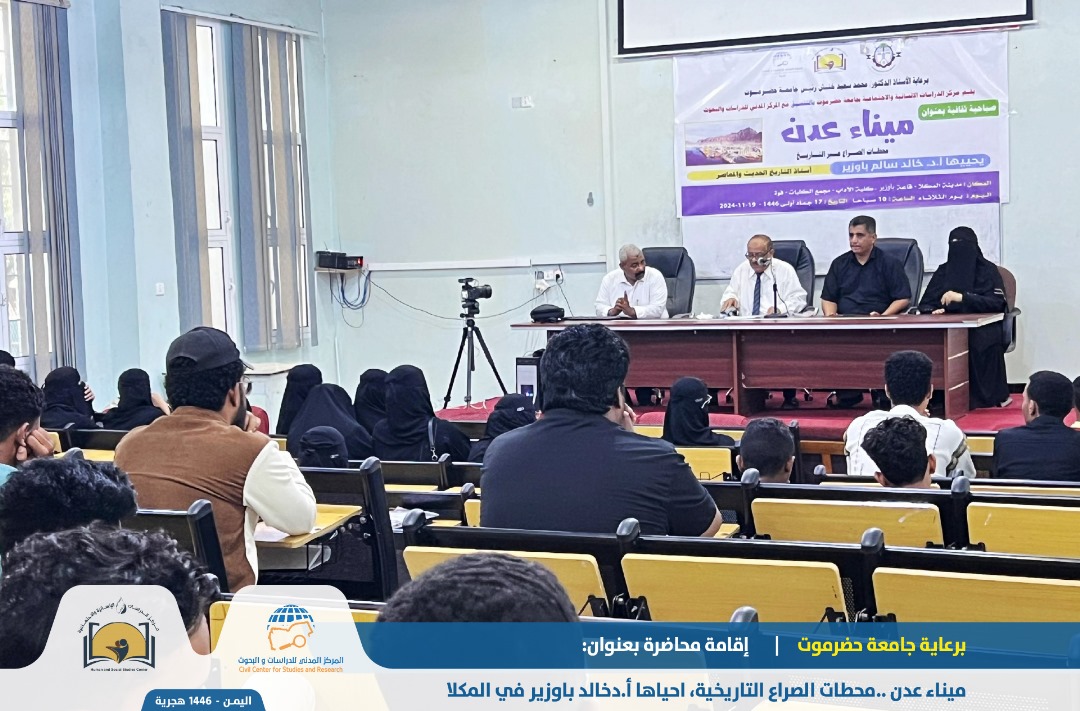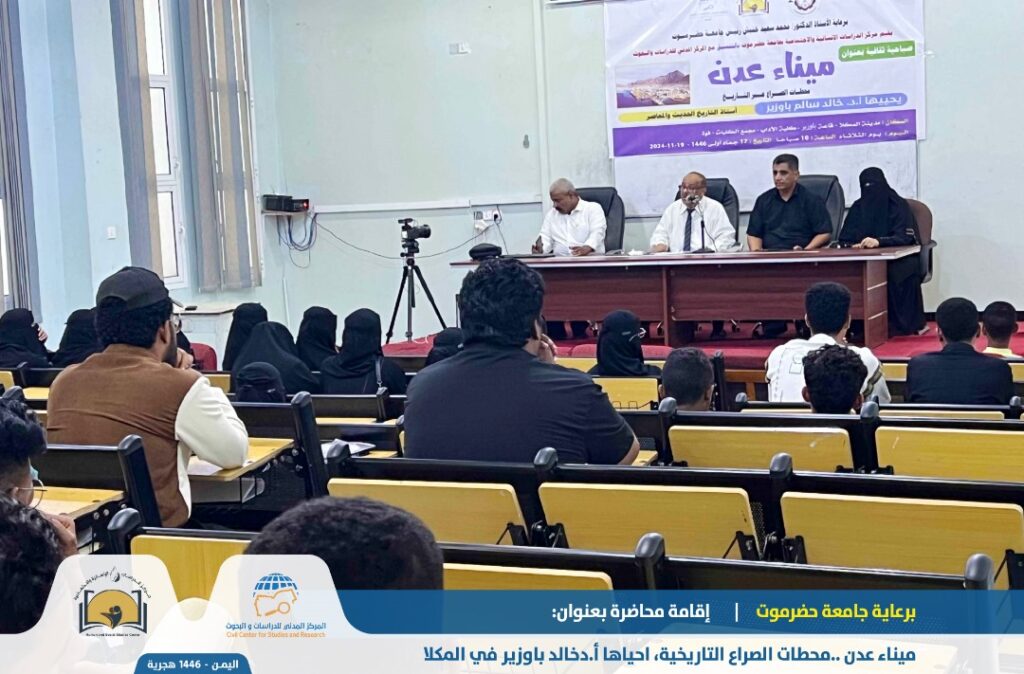The Center for Human and Social Studies at Hadhramout University, in coordination with the Civil Center for Studies and Research, organized a cultural morning event titled “Port of Aden: Stations of Conflict Throughout History”, under the patronage of Prof. Mohamed Saeed Khanbash, President of Hadhramout University.
At the event’s opening, Prof. Fathia Mohamed Bahashawan, Director of the Center for Human and Social Studies, delivered a welcoming speech in which she expressed her gratitude to the attendees and hoped the session would benefit all participants significantly.

The cultural session, led by Prof. Khaled Salem Bawazeer, a specialist in modern and contemporary history, offered a comprehensive overview of the Port of Aden’s historical significance and influence on global maritime trade from ancient times through the early and medieval Islamic periods.
The presentation explored the economic and historical roots of the port, as well as the successive foreign interventions it experienced due to its strategic geographic location. A detailed discussion was devoted to the motivations behind the British occupation of Aden and the period of British control, including the infrastructure and institutions established during that era.

The session emphasized the global importance of the Port of Aden. Prof. Bawazeer noted that the port once ranked third in the world in terms of maritime traffic, following the ports of New York and Liverpool.
In conclusion, the session highlighted the decline of the Port of Aden following the British withdrawal after the 1967 war. This marked the abolition of the Free Port Law in Aden and the subsequent cessation of commercial maritime activity.
The event was attended by Dr. Atef Al-Tamimi, Vice Dean of the Faculty of Arts and Humanities for Student Affairs; Dr. Najla bin Aqeel, Vice Dean for Academic Affairs; Dr. Jassim Abdullah Bousaba’a, Program Coordinator at the Center for Human and Social Studies; along with several department heads, faculty members, and students from the departments of Media, Political Science, and History.


